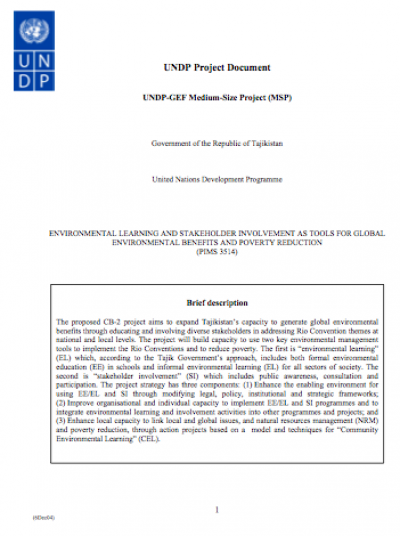Community Learning and Institutional Capacity Building for Global Environmental Management and Poverty Reduction in Tajikistan - Project Document (2008)

The project aims to expand Tajikistan’s capacity to generate global environmental benefits through educating and involving diverse stakeholders in addressing Rio Convention themes at national and local levels. The project will build capacity to use two key environmental management tools to implement the Rio Conventions and to reduce poverty. The first is “environmental learning” (EL) which, according to the Tajik Government’s approach, includes both formal environmental education (EE) in schools and informal environmental learning (EL) for all sectors of society. The second is “stakeholder involvement” (SI) which includes public awareness, consultation and participation.
The project strategy has three components: (1) Enhance the enabling environment for using EE/EL and SI through modifying legal, policy, institutional and strategic frameworks; (2) Improve organisational and individual capacity to implement EE/EL and SI programmes and to integrate environmental learning and involvement activities into other programmes and projects; and (3) Enhance local capacity to link local and global issues, and natural resources management (NRM) and poverty reduction, through action projects based on a model and techniques for “Community Environmental Learning” (CEL).